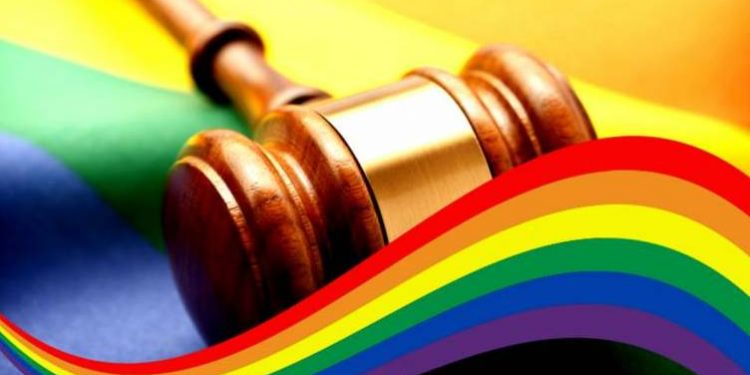New Delhi: The Centre Wednesday requested the Supreme Court to consider leaving questions raised in the pleas seeking legal sanction for same-sex marriages to Parliament.
Appearing for the Centre, Solicitor General Tushar Mehta told a five-judge constitution bench headed by Chief Justice DY Chandrachud that the apex court is dealing with a “very complex subject”, which has a “profound social impact”.
“The real question is who would take a call on what constitutes marriage and between whom,” Mehta said on the fifth day of hearing.
He told the bench, also comprising justices SK Kaul, SR Bhat, Hima Kohli and PS Narasimha, that there would be ramifications on several other statutes which would need a debate in the society and also in various state legislatures.
Hearing on the matter is underway.
On the first day of the hearing in the matter on April 18, the Centre had told the apex court that its preliminary objection on whether the court can at all go into this question or it would be essentially for the parliament to go into it be heard first.
The bench had told Mehta that the nature and tenability of preliminary objection will depend on the canvas the petitioners open up and the court wanted to have a view of their argument.
Mehta had said the subject with which the top court is dealing is virtually the creation of a socio-legal relationship of marriage which would be the domain of the competent legislature.
“When the subject is in the Concurrent List, we cannot rule out the possibility of one state agreeing to it, another state legislating in favour of it, another state legislating against it. Therefore, in the absence of the states being not joined, the petitions would not be maintainable, that is one of my preliminary objections,” he had said.
Mehta had said the preliminary objection was whether the court can at all go into this question or if it would be essentially for the parliament to go into it.
The bench April 18 had made it clear that it will not go into personal laws governing marriages while deciding these pleas and said the very notion of a man and a woman, as referred to in the Special Marriage Act, is not “an absolute based on genitals”.
The Centre, in one of its affidavits filed in the apex court, termed the petitions a reflection of an “urban elitist” view for the purpose of social acceptance and said the recognition of marriage is essentially a legislative function that the courts should refrain from adjudicating.
The Centre April 19 had urged the top court that all states and Union Territories be made parties to the proceedings on these pleas, saying any decision on the issue without obtaining their view would render the present “adversarial exercise incomplete and truncated”.
In a fresh affidavit filed in the apex court, the Centre had said it had issued a letter April 18 to all the states inviting comments and views on the “seminal issue” raised in these petitions.
While hearing the matter April 25, the bench had said Parliament undisputedly has the legislative power over issues raised in pleas seeking legal sanction for same-sex marriage and pondered over the “interstices” left open for it to exercise its power and to what extent.
The bench was faced with several consequential legal questions, such as adoption, succession, intestacy and laws governing pension and gratuity where a once legally-acknowledged spouse is the beneficiary, if it decides to legalise same-sex marriage.
PTI






































